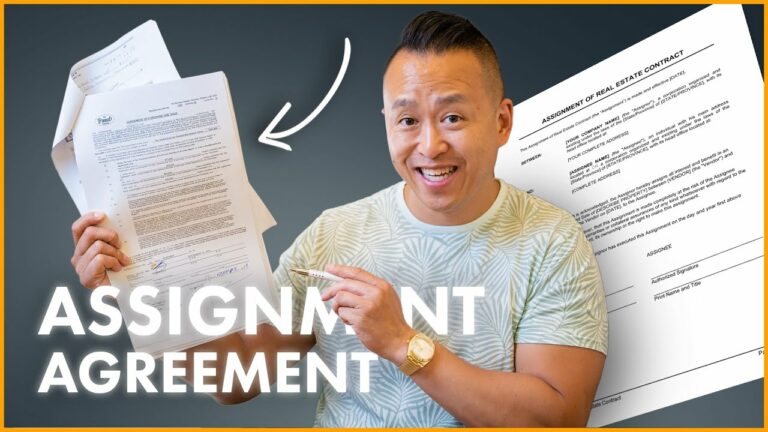Wholesaling In Real Estate: Unbelievable Facts You Should Know
Wholesaling in real estate is one of the quickest ways for a rookie real estate agent to make money. Real estate flipping without really purchasing it is known as wholesaling. The property owner and a prospective buyer are connected by the wholesaler as a middleman.
When a seller of a property wants to sell it for a reduced price, a wholesaler meets with him. The seller then has a limited amount of time in which to find a buyer. The wholesaler receives his own commission upon the sale of this asset.
Since the wholesaler isn’t closing on the investment, they can flip numerous homes without needing the money to close on the loans, which makes wholesaling a great method to begin a real estate investing career.
Wholesaling In Real Estate: A Comprehensive Guide
An explanation of the wholesale process is provided here.
Finding A Motivated Seller
Finding a motivated seller—someone who is eager to sell their property—is the first stage in the wholesale process. Since the seller is incentivized, they actually sell the house for less money, giving the wholesaler a bigger profit. Finding motivated vendors can be done in the following ways:
- Direct Mail Marketing: A common strategy for generating seller leads is direct mail marketing. Because they are affordable, wholesalers frequently use them.
- Cold Calling: Wholesalers are also fond of this. Although the majority of wholesalers will just purchase a list from a lead source, the best cold-calling leads can be found by skip-tracing particular attributes that fit your criteria.
- Internet-Based Advertisements: An effective technique for wholesalers to connect with homeowners trying to sell their property is by placing online adverts. However, it’s a bit pricey and difficult.
Negotiating The Deal
The next step is to agree on a price after finding someone who is eager to sell their property as soon as feasible.
Each seller has a ballpark figure in mind for the price they wish to acquire for their home, but as the wholesaler, you must make sure that you secure the property with an “investment style” bid. The style of the investor is essentially persuading the seller to sell their home at a reduced price.
If a property is worth, say, $120,000, the wholesaler might be able to persuade the owner to sell it for $90,000 before putting in a market offer of $100,000. The Wholesaler has gained $10,000 as a result of this.
Finding An End Buyer
You need to locate a buyer for the property if you want the deal to go through. A strong cash buyer list is essential to running a successful and lucrative wholesale business.
The majority of wholesalers would even contend that having a strong end buyer list is more crucial than locating motivated sellers. The more people on the list, the simpler it is to sell your house, and the faster you’ll get your money.
Advantages Of Wholesaling In Real Estate
Your potential benefits from wholesaling in real estate include the following:
Feasible and Easy Learning
The idea is quite simple. Find someone who wants to sell a property, make a deal, find a buyer, and profit. As a result, it is one of the simplest real estate strategies to learn.
Generates Returns
Wholesaling in real estate is also a quick way to make money. A successful transaction requires quick buyers because wholesale contracts frequently have deadlines. Furthermore, you earn a profit once the buyer has made a payment.
Wholesaler Serves As Middleman
Since the wholesaler is merely acting as a middleman, he is not required to purchase the asset. Just the seller and customer are connected by him. As a result, during the negotiation of the contract, the wholesaler might not spend any money.
Low Repair Costs
Since the contract homes are typically sold as-is, there is also no need for repairs or upgrades, which lowers the cost and wholesaler’s involvement in construction.
High-Profit Margin
Even if the profit margin varies and may be a set percentage of the purchase price or even a fixed rate, the money made from wholesale sales is typically substantial.
Disadvantages Of Wholesaling In Real Estate
The disadvantages of wholesaling in real estate are:
Low-Profit Margin
Despite the fact that depending on the property to be sold, profits can occasionally be substantial, they can also occasionally be low. The lesser risk and investment necessary for wholesalers to make this profit margin is reflected.
Dependency on Buyers and Sellers
In wholesale trade, buyers and sellers play a critical role. To complete a wholesale real estate transaction, you will need both investors who are prepared to purchase and property owners who are ready to sell. This makes wholesale trading challenging and stressful because you might not always receive them.
Unpredictable Income
A wholesaler could lose a transaction at any point, especially if they were unable to sell the property in the allotted time. Wholesale doesn’t come with a guarantee of profit. Even unmotivated sellers are not guaranteed to be obtained by the wholesaler.
See Also: Largest Industries in the United States
Final Thoughts
You should be able to sustain a profitable wholesaling operation once you’ve developed a system for locating motivated sellers and amassing a sizable and active end-buyer list.
However, it’s crucial to keep in mind that contracts between buyers and sellers can vary throughout states, and the closing procedure can also alter slightly according to the locale. The wholesaler may need to be a licensed real estate agent in some states.
It is best to learn everything there is to know about wholesale trading in your state before getting started. In order to prevent problems in the future, it is also advisable to hire an attorney during the agreement discussion and contract.



